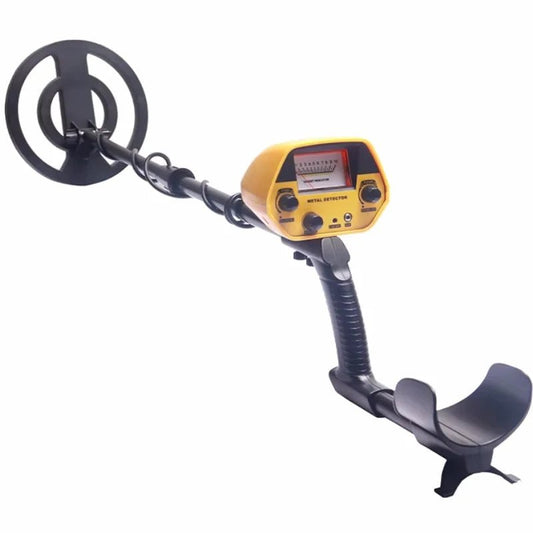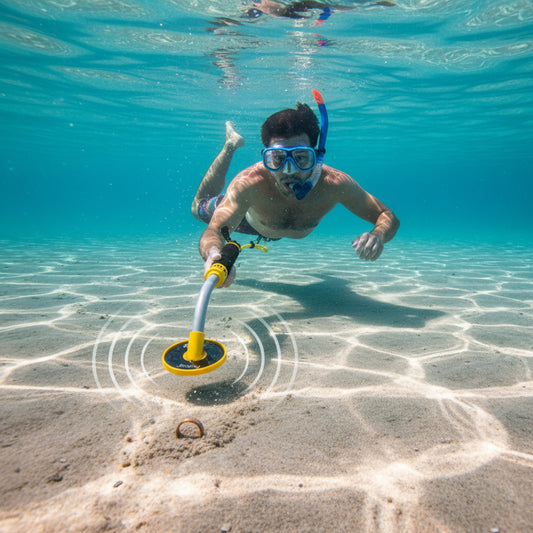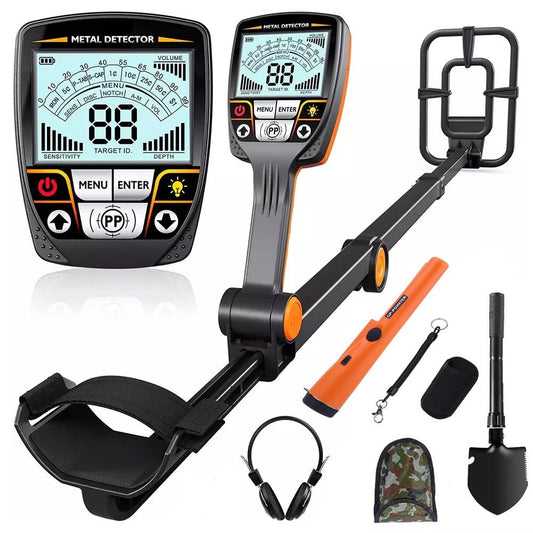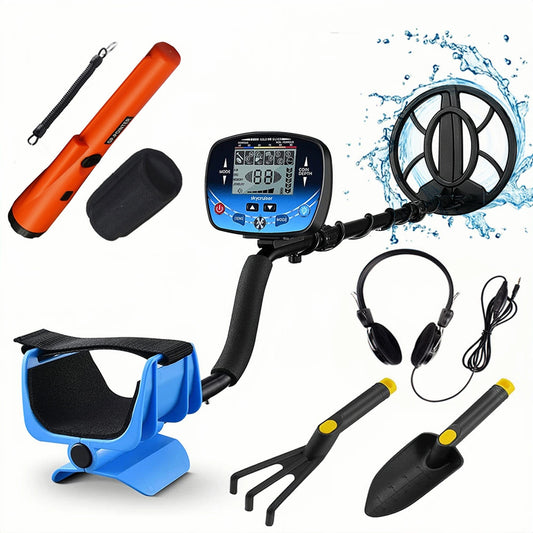
Metal Detecting in Brazil: A complete Treasure Hunter's Guide
Share
Brazil is a treasure hunter’s paradise, offering lush rainforests, legendary goldfields, and miles of vibrant coastline. From ancient pirate legends to modern-day gold rushes, metal detecting in Brazil is a thrilling adventure for locals and travelers alike.
This guide covers everything you need to know—laws, best beaches, gold prospecting, safety, and tips—to make your treasure hunt in Brazil both rewarding and responsible.
Are You Allowed to Metal Detect in Brazil?

Brazil is one of the more accessible countries for metal detecting, especially for recreational hobbyists. There are no specific national laws that prohibit metal detecting as a hobby, and it’s a common sight to see people searching on public beaches and open land.
Key legal points:
-
Beaches: Metal detecting is widely accepted on public beaches. Always check with local authorities or lifeguards if you’re unsure about a specific area.
-
Private Land: You must have the landowner’s permission to detect on private property, including old farms and plantations.
-
Protected Sites: Metal detecting is strictly prohibited in protected areas, such as national parks, archaeological zones, and sites with historical artifacts.
-
Gold Prospecting: Searching for gold nuggets or valuable metals requires a government permit (miner’s register), and is only available to Brazilian citizens.
-
Historic Finds: It is illegal to store or sell artifacts from the Colonial or Empire era (1500–1886). All significant historical finds must be reported to authorities.
In practice, recreational metal detecting is tolerated and even welcomed in many areas, but always respect local rules and avoid protected sites.
Best Beaches for Metal Detecting in Brazil

Brazil’s coastline stretches for over 7,000 kilometers, offering countless opportunities for beach metal detecting. Here are some of the best spots:
Copacabana & Ipanema (Rio de Janeiro)
These world-famous beaches are busy year-round. High foot traffic means a steady supply of lost coins, jewelry, and watches—especially after weekends or festivals.
Praia do Forte (Bahia)
A favorite among tourists and locals, this beach is known for its clear waters and rich history. Early mornings are best for detecting before the crowds arrive.
Ilha Grande (Rio de Janeiro State)
Once a pirate haven, Ilha Grande’s beaches and coves are rumored to hide treasures from centuries past. The island is also popular with modern beachgoers, increasing your chances of finding valuables.
Praia de Boa Viagem (Recife)
This urban beach is busy and often yields modern coins and jewelry. Be cautious of strong tides and always check local safety advice.
Ilhabela (São Paulo)
Known for its shipwrecks and pirate history, Ilhabela is a great spot for both relic hunting and modern beach finds.
Gold Hunting in Brazil

Brazil’s gold rush history is legendary. The state of Minas Gerais, in particular, was the epicenter of the 18th-century gold boom. Today, gold prospecting continues, especially in the Amazon and central regions.
Important notes:
-
Permits Required: Gold prospecting (searching for nuggets or natural gold veins) requires a government permit and is only legal for Brazilian citizens.
-
Where to Hunt: The best-known goldfields are in Minas Gerais, Pará, and the Amazon basin. Rivers like Rio das Mortes and Rio Tocantins are famous for placer gold.
-
Modern Finds: Some detectorists have used advanced metal detectors to locate natural gold veins in Brazil’s interior.
If you’re interested in gold prospecting as a foreigner, consider joining a licensed tour or working with a local guide. Never attempt to mine or prospect in protected areas or indigenous lands.
Hidden Treasures and Pirate Legends
Brazil’s coastline is rich in pirate lore and shipwreck stories. Islands like Ilha Grande and the area around Paraty were notorious pirate hideouts. While most legends remain unproven, the possibility of finding old coins or relics keeps treasure hunters coming back.
Tips for Successful Metal Detecting in Brazil

-
Detect Early or Late: Early mornings and evenings are the best times to avoid crowds and the intense sun.
-
Use the Right Equipment: A waterproof metal detector is ideal for beaches and rivers. Bring a sand scoop, pinpointer, and sturdy digging tools. Learn all about the equipment you need when metal detecting.
-
Stay Hydrated and Protected: Brazil’s climate can be hot and humid. Bring water, sunscreen, a hat, and insect repellent.
-
Respect the Law: Never detect in protected areas or remove historical artifacts. Always report significant finds.
-
Travel Light and Safe: Keep valuables secure, and be mindful of your surroundings, especially in remote or urban areas.
Safety Advice for Treasure Hunters
-
Wildlife: Brazil is home to snakes, insects, and other wildlife. Wear sturdy boots and be cautious in forests or tall grass.
-
Tides and Currents: On the beach, watch for strong tides and waves.
-
Local Customs: Brazilians are often curious about metal detecting—be friendly and explain your hobby.
-
Travel with a Buddy: Especially when prospecting in remote areas or goldfields.
What Can You Find?
Detectorists in Brazil commonly find:
-
Modern coins (Brazilian real, foreign currency)
-
Jewelry (rings, bracelets, necklaces)
-
Watches, sunglasses, and electronics
-
Historic relics (with care and legal compliance)
-
Occasional gold flakes or nuggets in goldfields
Conclusion
Metal detecting in Brazil offers adventure, history, and the thrill of discovery. With open laws for hobbyists, legendary beaches, and a gold rush legacy, Brazil is a top destination for treasure hunters. Always respect local regulations, stay safe, and enjoy the search—who knows what treasures the Brazilian sands and soils may reveal?




